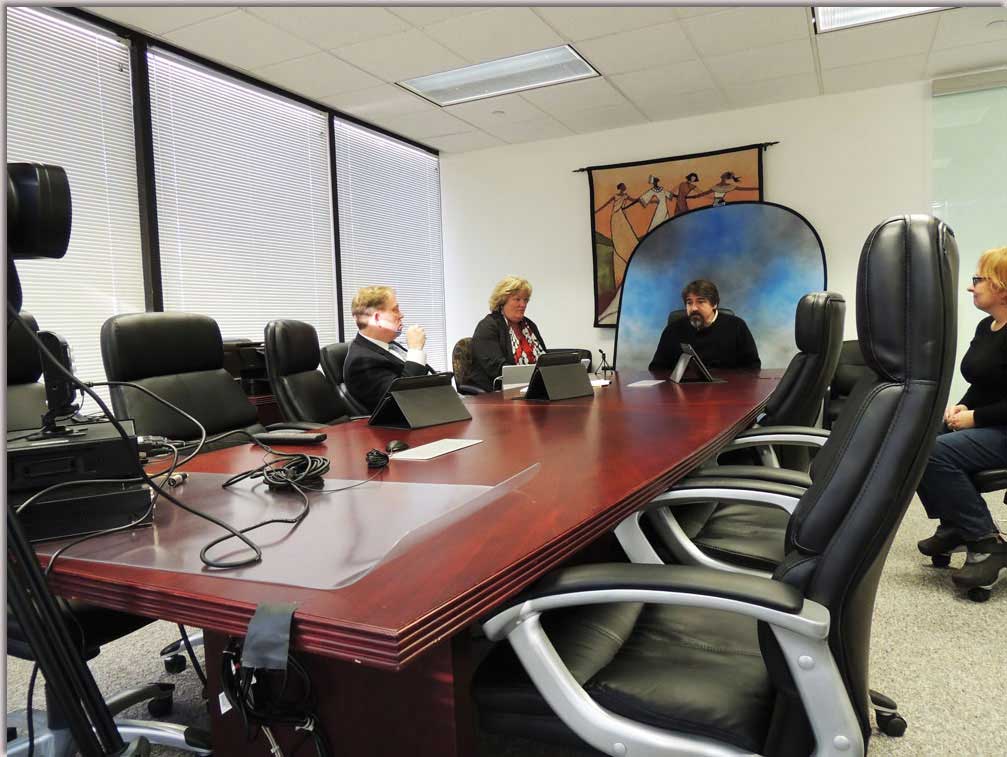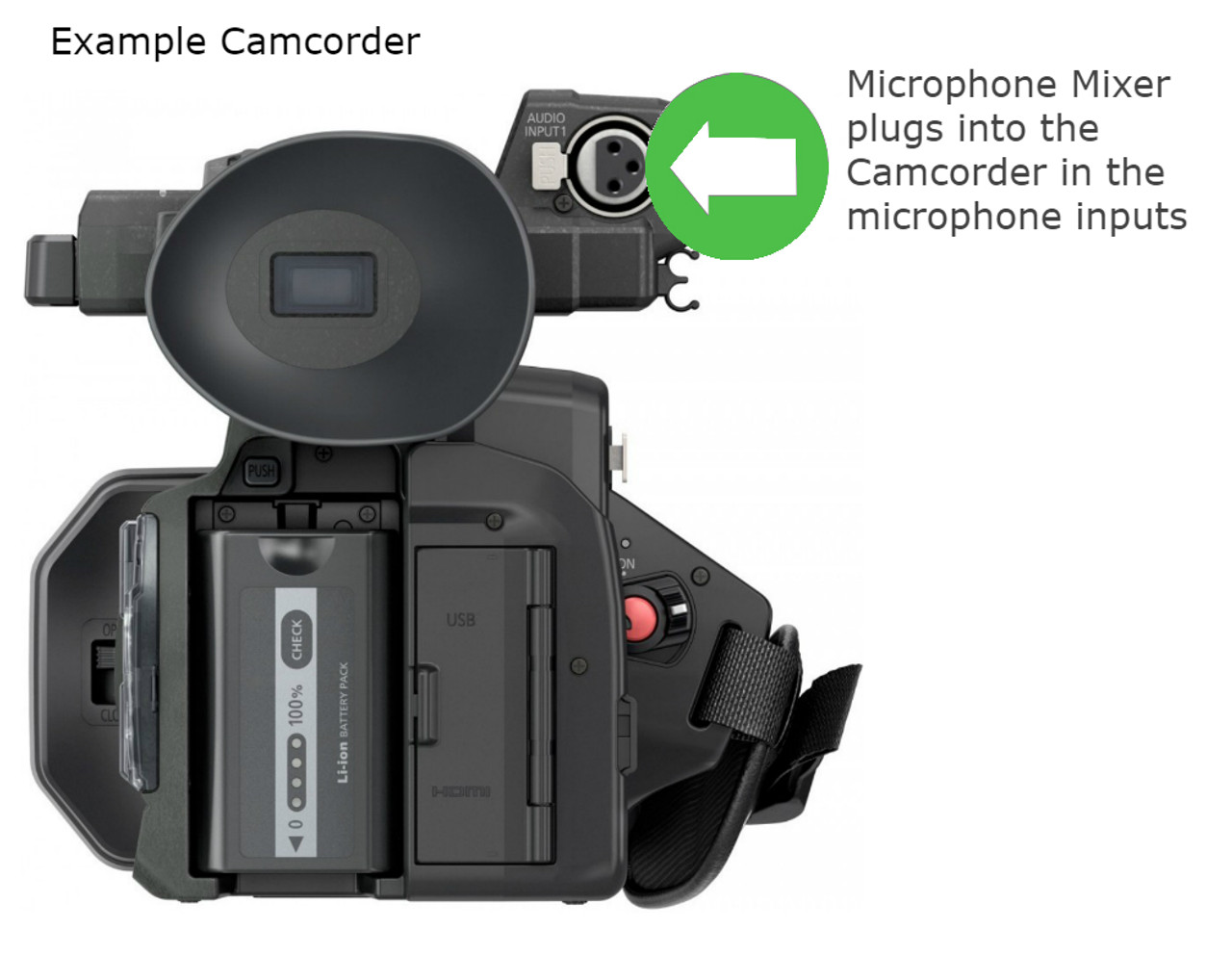The future of litigation: Why legal video depositions are here to stay
Wiki Article
The Value of Lawful Video Clip Depositions in Modern Legal Providers: What You Must Know
Lawful video depositions have come to be necessary in today's legal landscape. They provide a multidimensional sight of witness statements that standard transcripts merely can not match. By recording both verbal and non-verbal interaction, these depositions improve the overall understanding of a witness's integrity. Nevertheless, the effectiveness of video clip depositions rests on various variables, including conformity with lawful standards and ideal methods (legal video depositions). Discovering these aspects reveals their true importance in contemporary legal servicesWhat Are Lawful Video Depositions?
Legal video clip depositions act as an essential device in the lawsuits process. They include videotaping witness statements in a video clip layout, capturing both spoken and non-verbal interaction. This method allows attorneys to record the demeanor, expressions, and reactions of witnesses, supplying a richer context for the testament. Typically carried out in a controlled atmosphere, these depositions are led by lawyers that ask inquiries while a court reporter records the dialogue. The resulting video can be important for test prep work, as it makes it possible for legal representatives to assess the trustworthiness of witnesses and improve their approaches. In addition, lawful video clip depositions can be made use of in numerous lawful contexts, ranging from civil disagreements to criminal instances. The aesthetic and acoustic aspects of video depositions improve the presentation of evidence, making it a vital element in the contemporary legal landscape. Overall, they contribute substantially to the performance and performance of lawful procedures.
Benefits of Video Clip Depositions Over Standard Techniques
Video depositions provide numerous advantages contrasted to standard techniques of taking witness statements. One significant advantage is the capacity to catch both audio and visual components, giving an extra detailed document of the witness's statements. This twin layout improves clarity and permits lawyers to reference specific subtleties during trial prep work. Furthermore, video clip depositions assist in remote involvement, making it easier for witnesses that may be unavailable for in-person looks due to geographical restraints or health and wellness issues.Moreover, video depositions can quicken the general deposition procedure, minimizing the time and expenses connected with traveling and logistics. They also boost ease of access, as recorded depositions can be quickly shared amongst legal groups and referenced at any moment. This ease contributes to far better situation monitoring and preparation. On the whole, video depositions stand for a modern, effective approach to gathering witness testaments, aligning with the advancing needs of the lawful career.The Function of Body Movement and Tone in Testimonies

In legal video depositions, body movement and tone play vital duties in conveying a witness's trustworthiness and trustworthiness. Nonverbal cues can give insights right into a witness's emotional state, affecting exactly how their statement is perceived. Understanding the impact of these aspects is necessary for lawyers and jurors alike when examining the dependability of a testament.
Nonverbal Interaction Insights
While spoken communication is usually highlighted in lawful testimonies, nonverbal cues such as body movement and tone play an important duty in conveying credibility and emotion. Onlookers of depositions may note that a witness's position, motions, and face expressions can greatly affect assumptions of integrity. Consistent eye call might indicate confidence, while avoiding stare can suggest dishonesty or pain. In a similar way, the tone of voice-- its quantity, pace, and pitch-- can present feelings of sincerity or unpredictability. Lawyers have to be in harmony with these nonverbal signals, as they typically provide essential context that matches spoken words. Comprehending these subtleties can boost the effectiveness of depositions and affect the outcome of lawful procedures.Psychological Tone Effect
The psychological tone conveyed throughout lawful statements greatly affects how a witness is viewed. Body language, vocal inflections, and face expressions play important duties fit the story of a testimony. A witness displaying self-confidence with constant eye contact and a tranquil tone can infuse a sense of integrity and engagement. On the other hand, indicators of anxiety, such as fidgeting or an unstable voice, might result in apprehension regarding their account. The subtleties of psychological expression can affect the interpretation of truths, making it necessary for attorneys to acknowledge these signs. In video depositions, the visual and auditory components combine, highlighting the value of emotional tone in conveying sincerity and truthfulness within the lawful procedure.Credibility and Credibility
A crucial consider developing reliability and credibility throughout testaments hinges on the witness's body movement and intonation. Viewers frequently rely on non-verbal hints-- such as eye get in touch with, pose, and motions-- to examine a witness's genuineness. For circumstances, a witness that keeps eye call and presents open body movement might be regarded as even more straightforward and trusted than one who prevents eye call or shows up shut off. In addition, intonation plays a crucial duty; a stable, calm tone can strengthen the integrity of the statement, while fluctuations in pitch or image source volume may raise uncertainties. Inevitably, look at this now the combination of body language and singing tone substantially affects how a witness's statements are obtained and translated in a legal context.Finest Practices for Performing Video Clip Depositions
Performing video clip depositions needs careful preparation and implementation to ensure a effective and clear discussion of statement. It is important to select a silent, well-lit place to reduce diversions and safe and secure optimal video top quality. The tools ought to be tested in development, including cams, microphones, and lights, to prevent technological concerns throughout the deposition.Next, parties included have to evaluate the style and treatments beforehand, seeing to it that every person understands their functions. The deponent needs to be briefed on the process, consisting of just how to react clearly and concisely.Additionally, preserving a specialist disposition throughout the session is necessary. This consists of refraining from speaking over each other and validating that all inquiries are directed appropriately. Lastly, it is important to record the deposition in a format that permits simple playback and evaluation, protecting the honesty of the testament for future usage.Legal Considerations and Compliance Issues
How do legal considerations and compliance issues impact the effectiveness of video clip depositions? Lawyers have to browse a complicated landscape of regulations, making certain that video depositions adhere to administrative regulations and criteria. Conformity with legislations concerning privacy, consent, and recording methods is essential. Acquiring explicit consent from all events included is required to stay clear of lawful repercussions.Additionally, the admissibility of video proof in court can hinge on compliance with step-by-step demands. Ensuring that the tools utilized meets technological standards is additionally crucial, as poor top quality can weaken the deposition's reliability.Moreover, attorneys must recognize any details state legislations that control video depositions, as these can differ considerably. Failure to attend to these considerations can not just jeopardize the stability of the deposition but likewise impact the general instance technique, inevitably impacting the customer's legal results.Just How Video Depositions Effect Jury Assumption
While video clip depositions can function as effective devices in legal procedures, their impact on jury understanding is significant. The visual and acoustic aspects of video clip recordings provide jurors with a much more detailed understanding of witness behavior, reliability, and psychological feedbacks. This multimedia approach can improve the jurors' capacity to assess the reliability of testimony contrasted to traditional text-based transcripts.Moreover, video clip depositions enable jurors to observe body language, tone of voice, and face expressions, all of which can impact their analysis of the witness's statements. The existence of a witness on screen can humanize them, cultivating compassion and connection, which may persuade jurors' opinions. On the other hand, a witness who appears incredibly elusive or undependable on video clip might result in adverse perceptions that affect a court's decision. Eventually, the vibrant nature of video depositions plays a crucial duty fit just how jurors analyze proof and his explanation reach their judgments.The Future of Video Clip Depositions in Legal Technique
As advancements in technology remain to reshape the lawful landscape, the future of video depositions is poised for significant evolution. Innovations such as artificial intelligence, virtual fact, and boosted video clip conferencing tools are expected to streamline the deposition process and boost access. Legal specialists may utilize AI-driven analytics to assess witness trustworthiness and case strength more effectively.Moreover, the assimilation of online reality can permit juries to experience immersive simulations of depositions, providing much deeper context and understanding. Furthermore, the trend towards remote depositions is most likely to persist, offering better versatility for clients and lawyers alike.As remote job becomes significantly normalized, video depositions will likely come to be conventional practice, lowering expenses and time constraints connected with conventional methods. Generally, these technological innovations guarantee to boost the effectiveness, performance, and availability of video depositions in lawful practice, eventually changing exactly how lawful professionals get ready for trial.Often Asked Inquiries
Exactly How Much Do Lawful Video Depositions Normally Cost?

Can Video Depositions Be Made Use Of in Any Kind Of Instance?
Video depositions can be utilized in different kinds of cases, including civil, criminal, and family members law. Their versatility enables lawyers to present witness statements successfully, adjusting to the details requirements of various legal situations.What Devices Is Required for a Video Clip Deposition?
To conduct a video deposition, necessary equipment consists of a high-quality electronic camera, microphone, lighting, and a trusted recording device. Additionally, a computer system with editing and enhancing software program might be necessary for post-production and formatting the final video.How much time Does a Normal Video Clip Deposition Last?
A common video clip deposition lasts in between 2 to 4 hours, relying on the intricacy of the situation and the number of concerns presented. Extended sessions might occur, however breaks are generally incorporated for participant convenience.

Are Video Depositions Admissible in Court?
Video depositions are normally acceptable in court, given they follow legal standards and policies of evidence. Their use improves clarity and maintains witness testament, assisting in the judicial process during tests and hearings. Legal video clip depositions have ended up being necessary in today's legal landscape. In addition, lawful video depositions can be made use of in numerous legal contexts, ranging from civil disputes to criminal instances. In addition, video clip depositions promote remote involvement, making it simpler for witnesses that might be inaccessible for in-person appearances due to geographical restrictions or health and wellness issues.Moreover, video depositions can accelerate the total deposition procedure, decreasing the time and costs connected with traveling and logistics. Ensuring that the devices used satisfies technical standards is likewise important, as inadequate top quality can undermine the deposition's reliability.Moreover, lawyers need to be aware of any certain state regulations that regulate video depositions, as these can vary substantially. Additionally, the fad towards remote depositions is likely to persist, providing better versatility for attorneys and customers alike.As remote job ends up being significantly normalized, video clip depositions will likely become typical method, lowering costs and time restraints associated with traditional methods.Report this wiki page